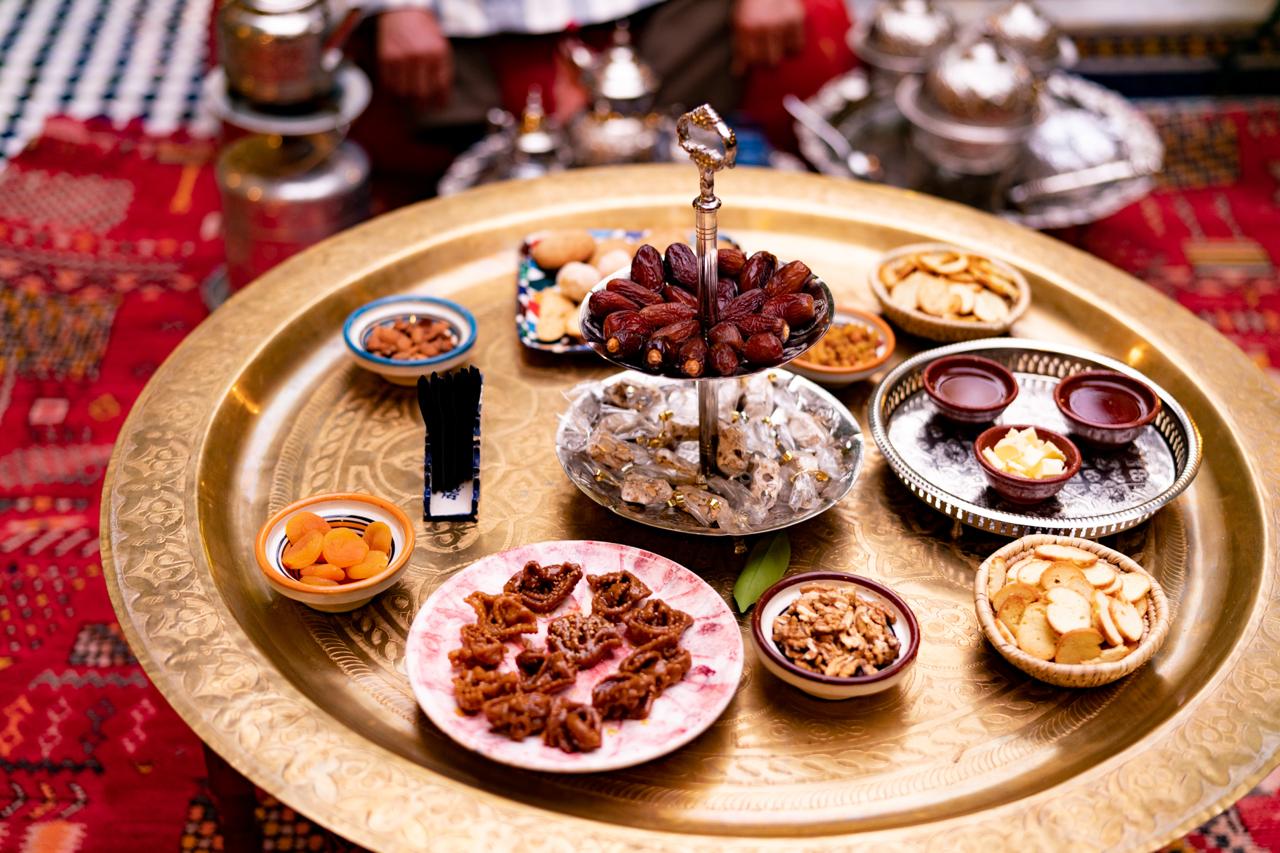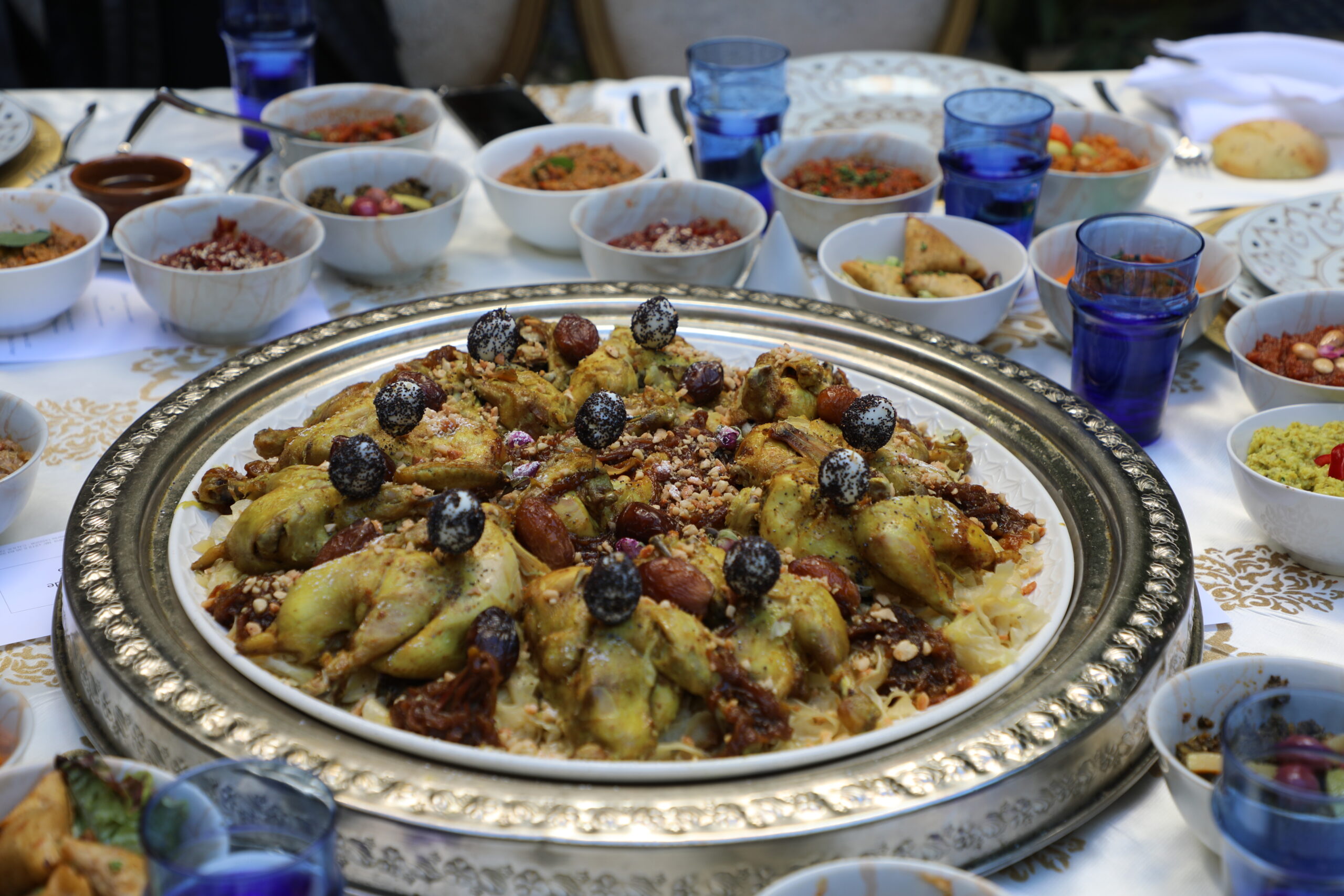

Eid al-Fitr, known in Morocco as “Aid Sghir” (the Little Eid), is one of the most anticipated celebrations of the year. Marking the end of Ramadan, this holiday is a time for joy, gratitude, and togetherness. Moroccan families come together to pray, share meals, and celebrate in a way that blends religious devotion with deep-rooted cultural traditions.
The Spiritual Beginning: Eid Prayer
The day begins early, with Moroccan families waking before sunrise to perform ghusl (ritual purification) and don their best clothes. Men and boys head to mosques or open-air prayer grounds for the special Salat al-Eid, while women often pray at home or join in large congregations. The streets echo with greetings of “Aid Mubarak Said” and “Taqabbal Allah minna wa minkum” (May Allah accept our fasts from us and from you).
Before Eid prayer, every Muslim family is required to give Zakat al-Fitr, a charitable donation meant to ensure that even the less fortunate can partake in the festivities. Traditionally, this was given in the form of staple foods like wheat, barley, or dates, but today it is often donated as money to local mosques or charities.
Festive Moroccan Breakfast
After a month of fasting, the first Eid breakfast is a delightful feast. Families gather around tables filled with:
* Msamen (flaky pancakes)
* Baghrir (honeycomb pancakes)
* Sellou (a sweet, nutty energy-boosting dish)
* Hard-boiled eggs, dates, and dry fruits
* Moroccan pastries
* Mint tea and coffee
In fact, this meal is a cherished moment where families reconnect and give thanks for the blessings of Ramadan.
Eid in Morocco : a Feast to Remember
In addition to this, Eid in Morocco is all about family and community. After breakfast, people set out to visit relatives, friends, and neighbors, exchanging warm greetings and sweet treats. Traditional Eid gifts, especially for children, include new clothes, small sums of money (“Eidiya”), and toys.
It’s common for lunch and dinner to be significant events, with tables filled with a variety of Moroccan delicacies. such as:
• Lamb or beef tagine (often with prunes and almonds)
• Chicken pastilla (a savory-sweet pie with almonds and cinnamon)
• Rfissa (a flavorful dish with shredded msemen, lentils, and fenugreek)
• Couscous (a staple at family gatherings)
Furthermore, desserts like chebakia (sesame honey pastries, briouates and kaab el ghazal (almond-filled crescents) are served alongside Moroccan mint tea.
Eid is an occasion to wear the finest Moroccan attire. Men typically wear djellabas or jabadors, while women don kaftans or elegant takchitas, often adorned with embroidery and jewelry. Children also wear new outfits, adding to the festive spirit.
The celebration is more than just a religious festival; it’s a time of joy, gratitude, and generosity. It brings together families, strengthens community ties, and reminds everyone of the values of faith, kindness, and togetherness.
Aid Mubarak Said! May this Eid bring happiness and blessings to all!
Mariem Trifi


